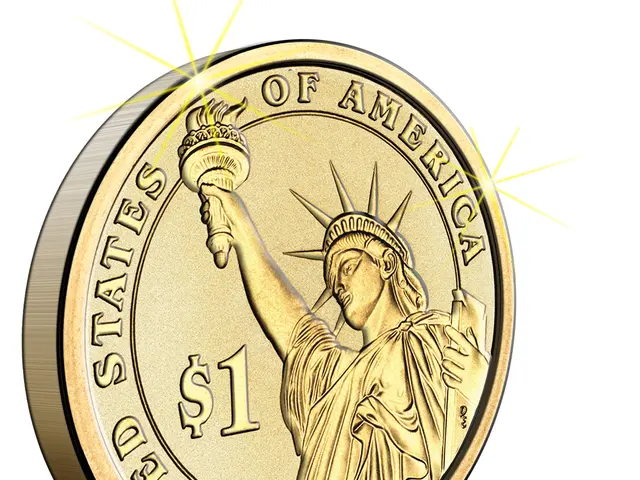Soaring Stocks: DAX Aims for 24,000 Points after US-China Deal
Dax aims to achieve 24,000 points following the China agreement.
The global market is buzzing with excitement after China and the USA reached a deal in their trade disputes. The German DAX is leading the charge, aiming for a new milestone of 24,000 points following a 1.8% surge to 23,911.98 points.
The EuroStoxx 50 is inching closer to its all-time high, rising 1.49% to 5,393.19 points, while the MDax, an index representing medium-sized German companies, spiked 1.10% to 30,056.18 points, although it still lags behind its 2021 record high of over 36,000 points.
The sectors with the most significant gains are export-oriented, with commodity values, autos, and technology seeing a 4.9%, 2.5%, and 2.5% increase, respectively. Oil values and industrial goods are also in high demand, while defensive stocks like utilities and telecommunications have shown slight losses. Pharmaceutical stocks have been hit hardest, falling 3.2% amid concerns over drug pricing in the US and dividend payments from companies like Sanofi.
The US dollar increased by 1%, while the gold price dropped significantly. In the morning, the price of gold fell to about $3,233 per ounce, representing a decrease of around $91 compared to Friday. Similarly, the gold price fell significantly in euros, dropping around $52 to $2,904 per ounce.
Safe-haven currencies like the Swiss franc and Japanese yen weakened by 1.5% and 1.6%, respectively. However, the dollar gained momentum due to the positive headlines surrounding the US-China trade conflict. The dollar index increased 1.2% to its highest levels in a month, while the euro fell 0.9% to $1.1111, reaching a one-month low.
The agreement between China and the USA reduces mutual tariffs provisionally for 90 days. This temporary relief has been well-received in the market. Thomas Altmann, a portfolio manager at QC Partners, noted that there is a tense anticipation at the stock exchanges. "Only time will tell how far the talks have progressed and how concrete the results are," explained Altmann.
Meanwhile, ProSiebenSat.1 shares surged almost 20% due to a change in takeover attempts by the Czech majority shareholder, PPF, and individual stock highlights include defense companies Hensoldt and Rheinmetall, which saw declines of 6% and 3%, respectively, following a meeting agreement between Ukrainian President Volodymyr Zelensky and Russian President Vladimir Putin in Turkey.
- Dax
- Stock prices
- USA
- China
- Trade disputes
Politics
The US and Russia are in a struggle to secure a meeting in Istanbul, with Trump criticizing Russia's World War II commemoration.
Enrichment Data:
Important Tariff Reduction Agreement: The temporary US-China tariff reduction agreed upon in May 2025 had a positive impact on global stock markets, including the German DAX. The Chinese and US governments agreed to slash their tariffs, with China reducing its tariffs from 125% to 10%, and the US dropping its tariffs on Chinese products from 145% to 30%. This reduced the effective US tariff rate on China from about 60% to approximately 30%.
The trade agreement alleviated severe downside risks for corporate earnings and economic growth by reducing trade-related uncertainty. In response, the S&P 500 rallied about 16% from recent lows by mid-May, while the tech-heavy Nasdaq 100 also surged nearly 4%, and offshore Chinese shares rose similarly, indicating global investor confidence.
Although the agreement was temporary and left some uncertainty that could impact long-term investment decisions, it still resulted in favorable, although perhaps more cautious, gains in the German DAX and other international markets, boosting prospects for German companies exposed to global trade, particularly those with significant Chinese and US market linkages.
The temporary US-China tariff reduction, agreed upon in May 2025, had a positive impact on the global stock markets, including the German DAX. This reduction in tariffs from both countries led to a boost in confidence among international investors, resulting in favorable, although more cautious, gains in the German DAX and other international markets. The agreement alleviated severe downside risks for corporate earnings and economic growth by reducing trade-related uncertainty, causing the S&P 500, Nasdaq 100, and offshore Chinese shares to surge in response.
The US and China's employment and community policies could influence the continuation and outcome of this agreement, considering it has significant implications for business, finance, investing, and the stock-market. For instance, employment policies might affect the workforce's productivity and, consequently, the growth of companies linked to the US and China markets.







